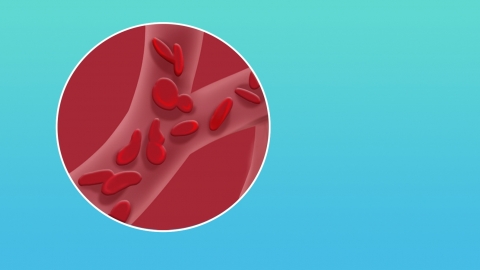What are the causes of low high-density lipoprotein?
Low levels of high-density lipoprotein (HDL) may be caused by不良生活习惯 (unhealthy lifestyle habits), improper diet, hypothyroidism, diabetes, nephrotic syndrome, and other conditions, and can be managed according to the specific situation. It is recommended to visit a hospital promptly and follow medical advice for treatment.

1. Unhealthy lifestyle habits: Long-term smoking, excessive alcohol consumption, lack of physical activity, and chronic sleep deprivation can affect the body's metabolic functions, leading to reduced synthesis or increased breakdown of HDL, thereby lowering its levels. There are typically no specific symptoms, but individuals may experience fatigue and poor mental condition. Improvements can be achieved by quitting smoking and limiting alcohol intake, engaging in at least 150 minutes of moderate-intensity aerobic exercise weekly, such as brisk walking or jogging, and maintaining a regular sleep schedule with early bedtime and wake-up times.
2. Improper diet: Long-term excessive intake of high-sugar, high-fat, and high-cholesterol foods combined with insufficient consumption of fruits, vegetables, and whole grains rich in dietary fiber can lead to metabolic disorders, hindering HDL production. There are generally no obvious discomforts, and the issue is often discovered during routine physical exams. Dietary adjustments should include reducing intake of fried foods and animal offal, and increasing consumption of foods such as apples, oats, and broccoli to achieve balanced nutrition.
3. Hypothyroidism: Insufficient secretion of thyroid hormones slows down the body's metabolic rate, affecting lipid metabolism and resulting in reduced HDL levels. Common symptoms include fatigue, cold intolerance, excessive sleepiness, and constipation. It is recommended to follow medical guidance for the use of medications such as thyroid tablets, levothyroxine sodium tablets, and Yikang capsules to alleviate symptoms.
4. Diabetes: Due to defects in insulin secretion or impaired insulin action, glucose metabolism disorders lead to abnormal fat metabolism, hindering normal HDL synthesis. Symptoms include increased thirst, increased appetite, frequent urination, and weight loss. Patients can follow medical advice to use medications such as metformin tablets, gliclazide modified-release tablets, and insulin injections to improve symptoms.
5. Nephrotic syndrome: Damage to the glomerular filtration membrane results in significant protein loss. To compensate for this loss, the liver increases lipoprotein synthesis, disrupting lipid balance and lowering HDL levels. Main symptoms include massive proteinuria, edema, and hyperlipidemia. Patients may follow medical guidance to use medications such as prednisone acetate tablets, cyclophosphamide tablets, and atorvastatin calcium tablets to improve symptoms.
In terms of diet, it is recommended to consume foods rich in protein, various vitamins, and minerals, such as eggs, lean meat, tomatoes, and apples, which can provide the body's required energy and help maintain overall health.
References:
[1] Xie Jiahong, Xian Zhong, Zhu Yurui, et al. Analysis of the correlation between non-high-density lipoprotein cholesterol/high-density lipoprotein cholesterol ratio and prognosis in patients with non-ST-segment elevation acute coronary syndrome and chronic kidney disease[J]. China Medical Journal, 2025, 20(03): 321-326.
[2] Pan Yuanyuan, Cheng Biao, Tao Xuefei, et al. Association of monocyte-to-high-density lipoprotein cholesterol ratio and thromboxane B2 levels with left atrial appendage thrombus in elderly patients with atrial fibrillation[J]. Chinese Journal of Geriatric Heart Brain and Vascular Diseases, 2025, 27(01): 18-21.






